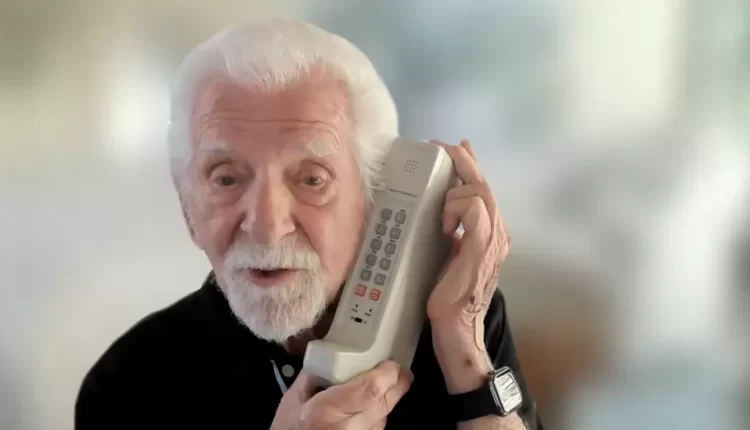It is 50 years since the first phone call made from a mobile phone!
On April 3, 1973, Marty Cooper was standing on a street corner in New York and pulled a phone book out of his pocket. Then he punched a number into a large, cream-colored device and put it to his ear as passers-by looked on in wonder.
Mr. Cooper, an engineer at Motorola, called his counterpart at rival Bell Laboratories to tell him triumphantly that he was calling from a "personal, portable cell phone." "I think he was gritting his teeth," the 94-year-old laughs.
Bell Labs focused on developing a car-based phone instead, he says. “Could you imagine that? We've been tethered to our homes and offices with this copper wire for over 100 years, and now to be tethered to our cars?” Cooper and Motorola disagreed with this concept developed by Bell, and history proved them right.

The working concept of the mobile phone is the same as it was 50 years ago
The basics of how the first phone call on a cell phone worked haven't changed much. The phone converts your voice into an electrical signal, which modulates a radio wave. The radio wave goes to a transmit/receive relay and then to the person you are calling. By reversing the process, that person can hear you speak.
Today's mobile phones, however, are unrecognizable compared to the model developed by Motorola in those days. The commercial version of Marty Cooper's prototype, the Motorola Dynatac 8000X, was launched 11 years after the first call, in 1984. Today it would cost the equivalent of £9.500 ($11.700), says Ben Wood, who runs the Mobile Phone Museum. "It was basically just dial the number and call," explains Mr Wood.
It had no camera and no texting. For thirty minutes of talk, expect 10 hours to charge the battery. Standby time was 12 hours. It had a 6-inch (15 cm) antenna on top. It also weighed 790g, almost four times the weight of an iPhone 14.
However, Mr Cooper remains unimpressed by the design of phones in 2023, although he admits he never predicted that phones would one day be portable "supercomputers" with cameras and internet access.
“I think today's phone is suboptimal. It's really not a very good phone in many ways,” he says.
He believes that in the future, artificial intelligence will either create or select apps for phone owners based on their individual needs. He also believes that one day the device will monitor our health, maximize our productivity and improve our lives immeasurably. At one point he even suggests that it could help eliminate wars.
"The mobile phone is not going to do it alone," he admits. "But it will be the centerpiece of this great future." Despite his complaints about its modern counterparts, Mr. Cooper apparently remains secretly enamored of the device he first held to his ear on that New York street corner 50 years ago. "We're still at the beginning of the mobile phone revolution," he says.

